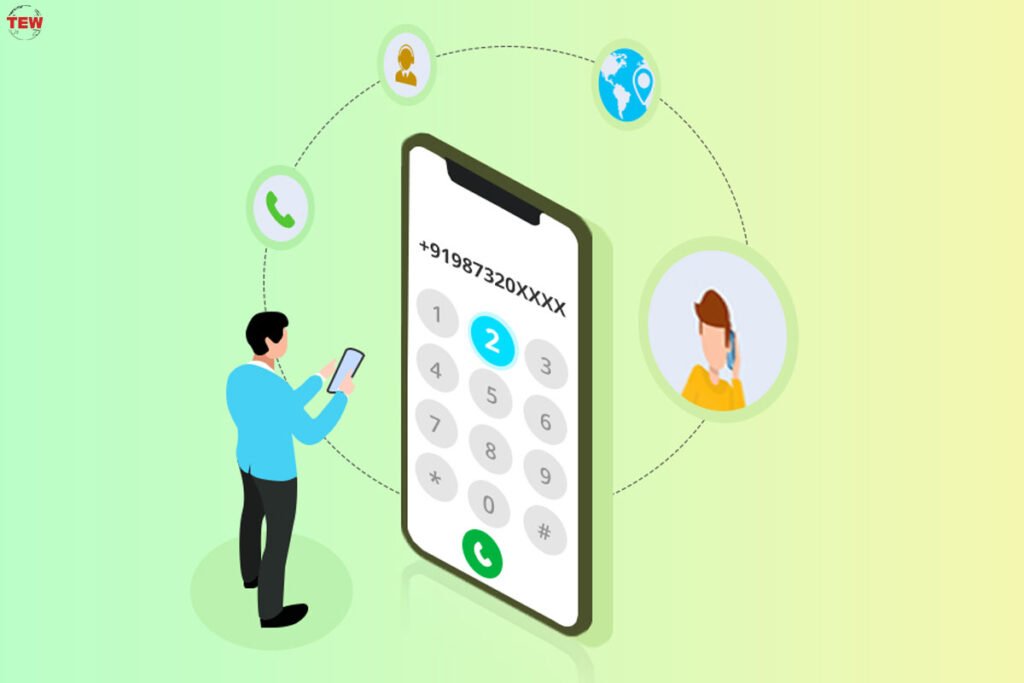The use of call centers has long been a popular option for many enterprises for providing customer service.
However, in recent years, there’s been a shift away from this traditional approach to customer service as more and more companies are moving to better digital solutions such as virtual phone numbers.
Why is this happening? Enterprises Are Now Shying Away From Call Centers :
Let’s find out!
1. Cost
One of the primary influences pushing enterprises away from call centers is their high cost to implement and sustain. This involves significant capital investment including personnel, training, and hardware costs.
Additionally, due to the need for customer service agents to remain on-site at all times and handle a high number of calls per day, labor costs can add up quickly.
On the other hand, affordable virtual phone numbers are made easy to obtain and operate with the help of cloud-based service providers.

Companies can set up their own virtual phone numbers to use for customer service, sales, or any other business communication needs in a matter of minutes. And that too without worrying about purchasing additional hardware or spending time and money on maintenance.
To top it off, virtual phone services usually have no call limit restrictions so businesses can save money on long-distance calls or international calling plans.
2. Efficiency
Call centers also come with some inherent efficiency problems, such as long wait times and a lack of automation. Long queues mean customers get frustrated and hang up, resulting in a loss of business.
With virtual phone numbers, however, automated systems can handle multiple calls simultaneously, providing the ability to respond rapidly and effectively to customer queries and complaints.
In addition, a unified system allows customer service agents to access the same information and resources no matter where they are located. This makes it easier to provide a consistent level of service quality while also improving team collaboration.
3. Scalability
Another issue with on-site call centers is scalability, or the ability to rapidly expand or contract operations. This requires a significant amount of time, resources, and can be challenging to manage effectively.
Virtual phone services, however, offer a much more scalable solution as they require almost no physical infrastructure investments. This allows companies to quickly respond to customer demands and adjust their operations accordingly, whether it be reducing costs during slow seasons or quickly ramping up in times of increased demand.

As an example, if a promotional campaign causes a seasonal boom in calls, businesses can easily add additional virtual phone numbers and hire temporary staff to handle the call volume from their homes.
4. Geographical Boundaries
With globalization on the rise, businesses are increasingly looking to expand their operations and customer base beyond traditional geographical boundaries. This presents a challenge for on-site call centers, as they require substantial investment to set up in other countries.
Virtual phone numbers, on the other hand, offer a borderless solution. They allow enterprises to break through geographic boundaries without having to worry about maintaining offices in different countries.
For example, you can purchase a local virtual number of a country you’re expanding too. This will allow customers in that country to reach you by calling a local number, saving their money and increasing their trust in your business.
This also means that you can hire IT support teams in cheaper countries, which can then provide assistance to customers all around the world from the comfort of their own homes.
5. Pandemics
Finally, the COVID-19 pandemic has changed the business landscape entirely, reducing the popularity of physical meetings and on-site operations.
For companies with traditional call centers, the pandemic posed a major challenge as operations had to be shut down and staff members could no longer work from the office.

This highlighted the need for businesses to find new, cost-effective ways of staying in touch with customers and providing quality service.
In this regard, virtual phone numbers are again an ideal solution. As mentioned earlier, they make it possible to provide customer service from anywhere in the world with a high-speed internet connection.
This makes it possible for businesses to continue operations during any future pandemics with minimal disruption or reduced customer service quality.
As a result, more and more businesses are setting up virtual phone numbers in a bid to future-proof themselves.
What Are Virtual Phone Numbers?
A virtual phone number is a telephone number that is not tied to any physical phone line or SIM-card. Virtual phone numbers are hosted in the cloud and use Voice over Internet Protocol (VoIP) technology to make and receive calls.

How Does a Virtual Phone Number Work?
Virtual phone numbers work by routing calls through the internet, instead of physical telephone lines. When a customer dials a virtual phone number, the call is relayed over an online network to the designated end recipient.
So, for example, if a customer from the US calls a virtual phone number hosted in Europe, then the call will be routed over an internet connection instead of being physically transmitted across international borders.
The recipient of the call can be a telephone, VoIP-enabled device (like an app), or even a computer.
Final Words
Call centers are increasingly becoming a thing of the past, as businesses now favor more cost-effective and reliable solutions like virtual phone numbers.
Virtual phone numbers eliminate the need for businesses to invest in expensive infrastructure, as they are hosted in the cloud and use VoIP technology to make and receive calls.
This makes international communication fast and cost-effective, while also ensuring customer service is not disrupted during pandemics or other emergency situations.
For these reasons, more and more companies are now shying away from call centers and opting for virtual phone numbers instead. It’s an investment in the future of customer service, one that can yield greater returns over time.





